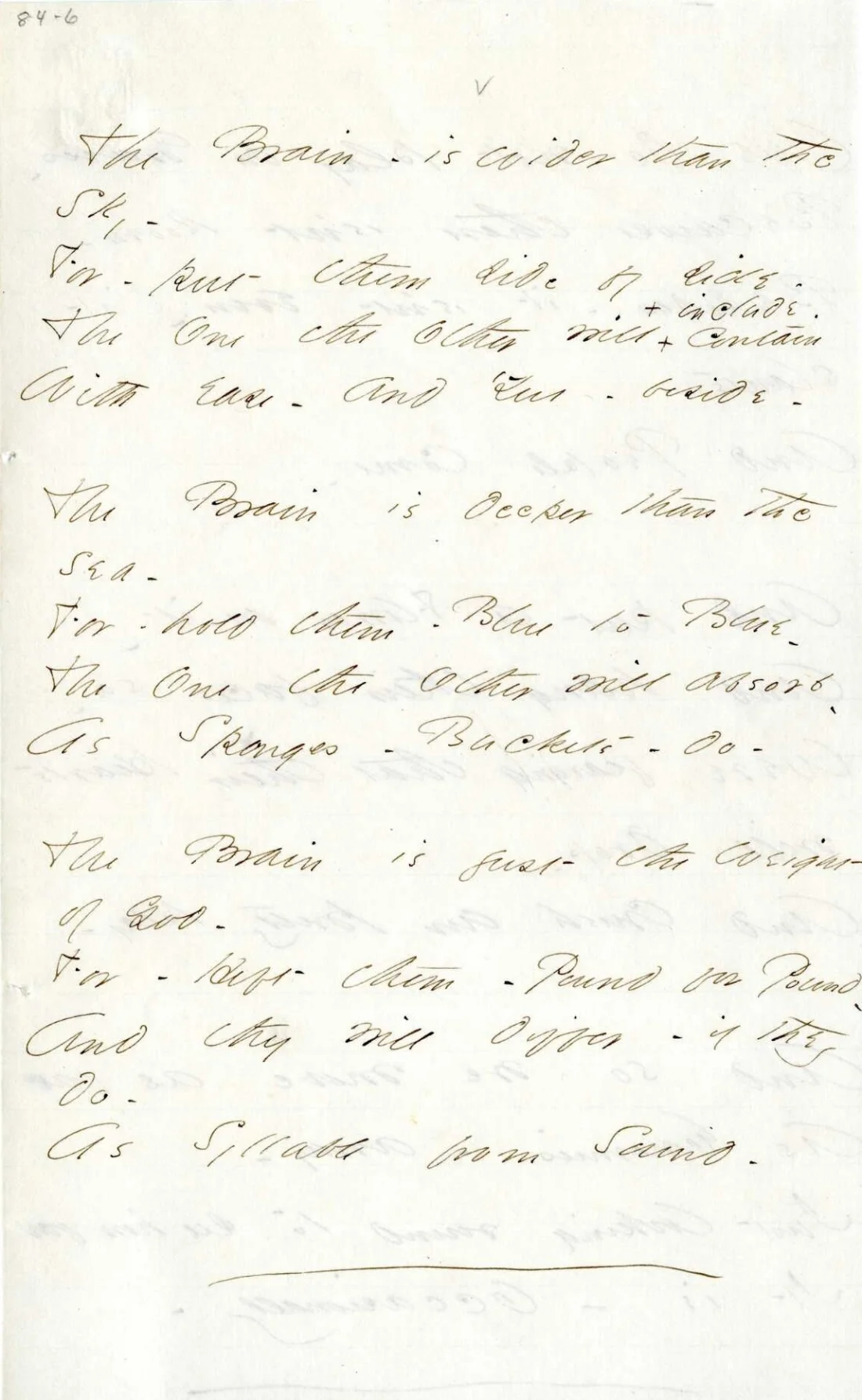Virginia Woolf: Words Are Full of Echoes
Anyone who has sat long enough at an empty page or a blank computer screen is familiar with the moments when words stubbornly stay hidden in the mind, refusing to reveal themselves for the page. Even when we do manage to coax them out of hiding and corral them into proper sentences, they can end up appearing like children with sticks and leaves in their hair, obviously having enjoyed a good rolling around in the mud while we were off looking for them.
What do words do when we’re not seeking to arrange them in nice lines of thought and meaning? In the only surviving recording of Virginia Woolf from a BBC radio broadcast on April 29, 1937, we’re presented with words as living beings with busy lives. She draws attention to the fact that most words precede us. They’ve been “out and about” for centuries before we—readers and writers of today—have had them on our own lips:
Words, English words, are full of echoes, of memories, of associations—naturally. They have been out and about, on people’s lips, in their houses, in the streets, in the fields, for so many centuries. And that is one of the chief difficulties in writing them today—that they are so stored with meanings, with memories…
With such legacies, what is left for us to do with words? Woolf reminds us that though words may be “the wildest, freest, most irresponsible, most unteachable of all things,” they nonetheless deserve respect, even admiration:
Thus to lay down any laws for such irreclaimable vagabonds is worse than useless. A few trifling rules of grammar and spelling are all the constraint we can put on them. All we can say about them, as we peer at them over the edge of that deep, dark and only fitfully illuminated cavern in which they live—the mind—all we can say about them is that they seem to like people to think and to feel before they use them, but to think and to feel not about them, but about something different.
Words offer us a way to discover new territories of thought. According to Woolf, words want us not to turn our eyes to them, but to discover new territories so that words can discover themselves, for words as animated beings are nonetheless contingent on our use of them.
What, then, can we contribute to a world of words? For Woolf, we can create those new and beautiful worlds:
Our business is to see what we can do with the English language as it is. How can we combine the old words in new orders so that they survive, so that they create beauty, so that they tell the truth? That is the question.
And a beautiful question, at that.
Additional Resources
Watch an animated, condensed version of Woolf’s recording (below)—commissioned by the BBC in commemoration of the 75th anniversary of her death. It is a beautiful video that goes one step further in helping to make the movement of words more visible. The full transcript of Woolf's recording can be found at the site. The video is presented below.
Pair this with Edward Thomas’ poem, “Words.” The first lines begin:
Out of us all
That make rhymes,
Will you choose
Sometimes —
As the winds use
A crack in a wall
Or a drain,
Their joy or their pain
To whistle through —
Choose me,
You English words?
*Frontispiece
Image from animated video by Barry Evans, commissioned by the BBC and published 28 March 2016.



